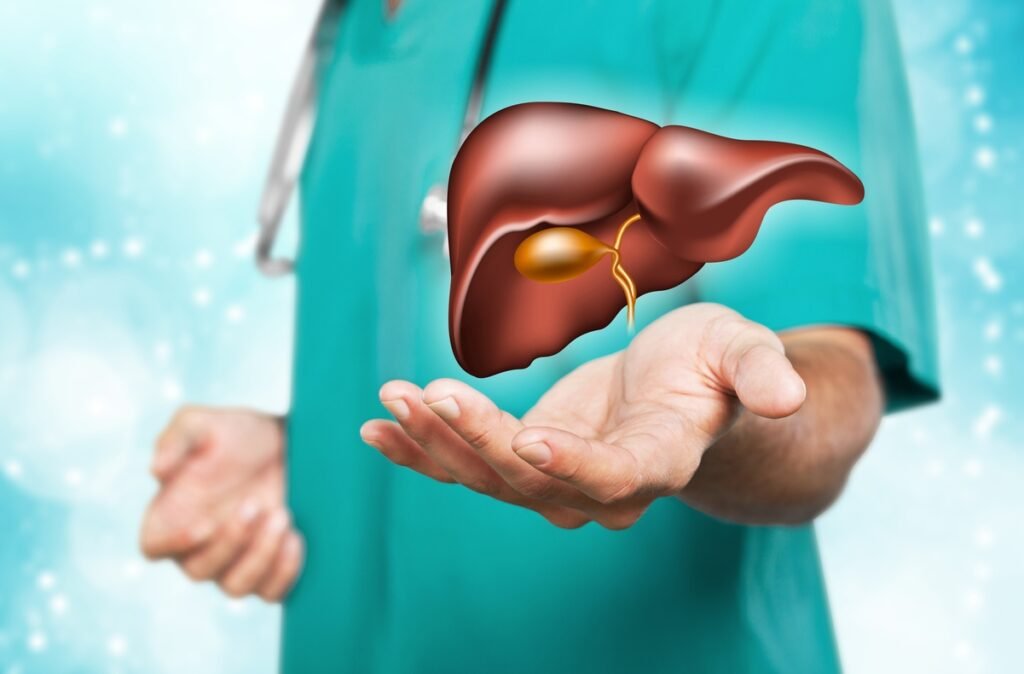Best Liver Care Hospital in Jaipur
In the context of liver care solutions in Jaipur, Priyanka Hospital is one of the most reputed hospitals you can rely on. Our experienced team of hepatologists, a wide range of services, and focus on the patient’s needs are the reasons why you should choose us as your liver healthcare provider in the city. Call us today for a consultation and start improving your liver health. Feel the change that we at Priyanka Hospital bring. where your health comes first.
Every patient that is treated at Priyanka Hospital is a one of a kind individual that deserves special care. Thus, our team proposes an individual approach to the choice of therapies and prefers to work according to the patient’s individual characteristics and desire. Whether it is medical management, interventional procedures or surgical intervention, we tailor the management to best suit our patients.

Why Choose Priyanka Hospital For Liver Care in Jaipur
Liver is one of the most vital organs of the human body, and to cater the needs of the people of Jaipur, Priyanka Hospital is the best liver care hospital that provides the most effective and advanced treatment for all types of liver diseases such as hepatitis, fatty liver disease, liver cirrhosis, and liver cancer. Starting with diagnosis to coming up with complicated treatments, we have a complete approach that meets the patient’s needs. The hospital has facilities and equipments that are modern and up-to-date to ensure the best treatment for liver diseases. It ranges from diagnostic imaging to sophisticated endoscopic operations, we employ state of the art technology.
The Liver Care & Transplant Treatment Procedure
Before considering liver transplant surgery, each patient undergoes a thorough evaluation. This assessment involves reviewing the extent of liver disease and assessing the function of other organ systems such as the heart, kidneys, and lungs. General anesthesia is administered during liver transplant surgery, inducing a sleep-like state for the patient. The medical team conducts comprehensive medical examinations and inquiries into the patient’s medical history. These may include the following tests:
- General health check-up
- Blood and urine tests
- Imaging tests to visualize internal organs
- Tests to assess kidney, heart, and lung function
The medical team assesses the patient’s suitability for surgery, taking into account any existing medical conditions that may affect the success of the transplant. Certain conditions, such as severe infections, alcohol or drug addiction, or significant lung or heart disease, may disqualify a patient from undergoing transplantation.
The results of the evaluation are reviewed by the hospital’s selection committee. If the patient is deemed eligible for a transplant but does not have a living donor, they will be placed on the national waiting list for a deceased donor liver. The transplant team at Priyanka Hospitals will notify the patient as soon as a matching liver becomes available from a deceased donor and provide instructions for admission to the hospital.
When Do you Need a Liver Transplant?
Without a healthy liver, survival is not possible. Liver transplant surgery may be necessary if the liver fails to function properly, often due to chronic liver failure or end-stage liver disease. Hepatologists may recommend a liver transplant for individuals with various liver diseases, including:
- Alcoholic cirrhosis, caused by liver damage from alcohol abuse.
- Liver-related cancers such as hepatocellular carcinoma, hepatoblastoma, and cholangiocarcinoma.
- Primary biliary cirrhosis.
- Metabolic conditions leading to liver failure, like Wilson's disease.
- Birth-related damage to the liver or bile ducts.
- Hepatic vein clot (thrombosis).
- Persistent infections like Hepatitis B or C.
- Poisoning, such as from ratol.
After a liver transplant, patients typically require one to four weeks of inpatient care depending on the severity of their condition. Lifelong medication is necessary to prevent rejection of the new organ by the immune system for those who undergo liver transplant surgery.
Explore Our Main Service
Cardiac Sciences
Clinical Diagnostics
Kidney Transplant
Critical & Intensive Care
Gynecology & Obstetrics
Neuro Sciences
Cosmetic Surgery
Spine & Scoliosis
Liver Care
Paediatric Cardiology
Genetic Sciences
ENT Surgery
Joint Replacement
Orthopaedics & Trauma
Pulmonology
Arthroscopy Sportsmedicine
IVF
Dental Sciences
Pain Clinic
Nephrology
Paediatrics
Health Checkup
Urology
Gastro Sciences
Dermatology
Emergency Medicine
Physiotherapy
Sleep Disorder
FAQs on Liver Care & Transplant
What is the function of the liver in the body?
The liver plays a vital role in metabolism, digestion, detoxification, and storage. It processes nutrients absorbed from the digestive tract, produces bile to aid in digestion, detoxifies harmful substances such as alcohol and medications, stores glycogen for energy, and synthesizes proteins and clotting factors.
What are the common causes of liver damage and disease?
Common causes of liver damage and disease include excessive alcohol consumption, viral hepatitis (such as hepatitis B and C), fatty liver disease (non-alcoholic fatty liver disease or NAFLD), autoimmune liver diseases (such as autoimmune hepatitis and primary biliary cholangitis), genetic disorders, certain medications, toxins, and infections.
How can I maintain liver health?
Maintaining liver health involves adopting a healthy lifestyle, including limiting alcohol intake, maintaining a balanced diet low in saturated fats, refined sugars, and processed foods, exercising regularly to maintain a healthy weight, avoiding exposure to toxins and harmful chemicals, practicing safe sex to prevent hepatitis transmission, and getting vaccinated against hepatitis A and B.
What are the symptoms of liver disease, and when should I see a doctor?
Symptoms of liver disease vary depending on the underlying cause and may include fatigue, jaundice (yellowing of the skin and eyes), abdominal pain or swelling, nausea, vomiting, loss of appetite, dark urine, pale stools, itching, and easy bruising or bleeding. It’s important to see a doctor if you experience persistent or severe symptoms suggestive of liver disease, as early detection and treatment can prevent complications.
How is liver disease diagnosed and treated?
Diagnosis of liver disease typically involves a combination of medical history evaluation, physical examination, blood tests to assess liver function and detect markers of liver damage, imaging tests such as ultrasound, CT scan, or MRI, and sometimes liver biopsy for definitive diagnosis. Treatment depends on the specific liver condition and may include lifestyle modifications, medications to manage symptoms and slow disease progression, antiviral therapy for viral hepatitis, immunosuppressive drugs for autoimmune liver diseases, and in severe cases, liver transplantation. Early diagnosis and intervention are key to improving outcomes and preventing liver failure.
Still Have a Question?
If you cannot find answers to your queries, please fill out the enquiry form or call the number below. We will contact you shortly
